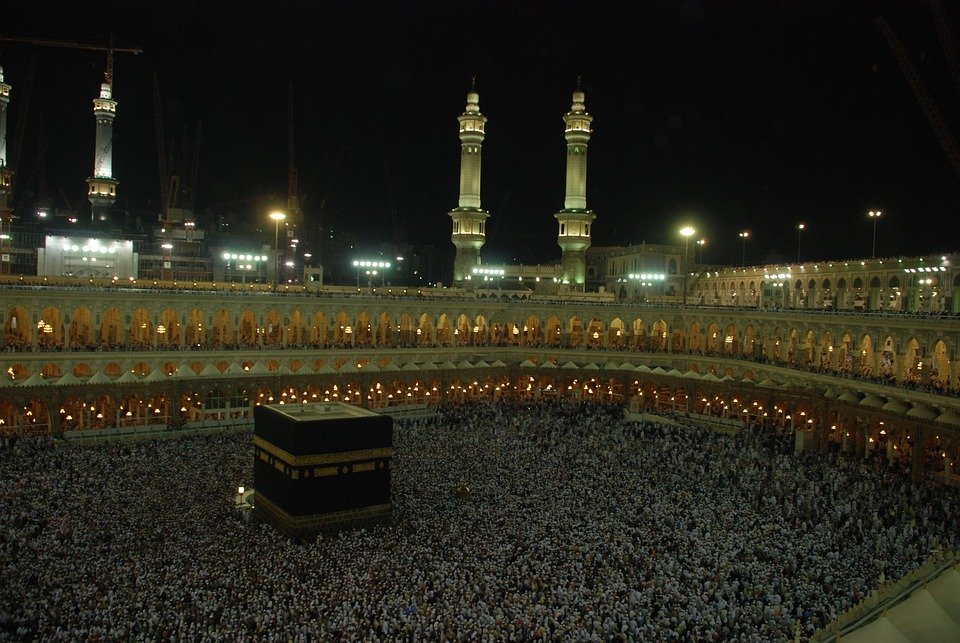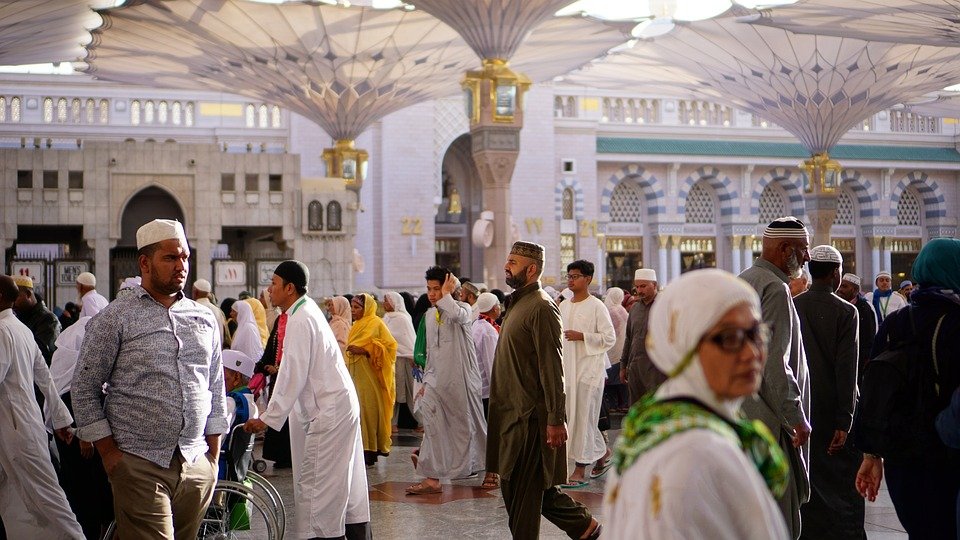Have you ever heard about the tahajjud prayer and wondered what makes it so special? Well, you’re in the right place! The tahajjud prayer is a voluntary night prayer in Islam, prayed after waking up from sleep, usually in the last third of the night. It’s known for its deep spiritual benefits and closeness to Allah. Many Muslims find it a powerful time for reflection, dua (supplication), and seeking forgiveness. In this article, I’ll guide you through everything you need to know—how to pray it, its blessings, and why it holds such a unique place in a believer’s life. Trust me, by the end, you’ll have a clear understanding of the tahajjud prayer and how to make it a part of your routine.
Now, you might be thinking, “Why should I take this guide seriously?” Well, at Hajj2026.org, we’ve been helping Muslims with Islamic guidance and travel services for Umrah, Makkah, and Madinah since 2016. That’s 9 years of experience! I feel confident in saying that our team knows what matters to you when it comes to acts of worship like the tahajjud prayer. We’ve helped thousands of travelers and seekers of knowledge, and in my opinion, that hands-on experience makes our advice practical and reliable. So, sit back, relax, and let’s explore this beautiful prayer together—I promise it’ll be worth your time!
Tahajjud Prayer: Benefits, Time & How to Perform
The Tahajjud prayer is a special night prayer that holds immense spiritual significance. Many people, including myself, find it to be a deeply peaceful and rewarding experience. Waking up in the quiet hours before dawn to pray brings a sense of closeness to the Divine that’s hard to describe. Whether you’re new to Tahajjud or have been practicing it for years, understanding its benefits, timing, and method can make it even more meaningful.
At Hajj2026.org, we’ve been guiding travelers for Umrah and visits to Makkah and Madinah since 2016. With nine years of experience, we’ve helped countless people deepen their spiritual journeys. While we don’t directly provide Hajj or Umrah services, we connect you with trusted tour operators who do. Now, let’s explore the beautiful practice of Tahajjud prayer together.
Tahajjud Prayer
What Is Tahajjud Prayer?
Tahajjud is a voluntary night prayer performed after waking up from sleep. It’s different from the five daily obligatory prayers, making it a special act of devotion. The word "Tahajjud" itself comes from an Arabic root meaning "to wake up," which perfectly describes its essence. I think of it as a quiet conversation with Allah when the world is still asleep.
Many scholars consider Tahajjud one of the most virtuous extra prayers. The Prophet Muhammad (PBUH) highly recommended it, and his companions often practiced it. What makes it unique is its timing—late at night when distractions fade, and the heart feels more open to reflection. If you’ve ever struggled with focus in prayers, Tahajjud might be the perfect time to reconnect spiritually.
When Is the Best Time for Tahajjud?
The ideal time for Tahajjud is the last third of the night, just before Fajr. This period is believed to be when Allah’s mercy descends most abundantly. I feel this time has a certain serenity—no noise, no rush, just stillness. If you’re unsure how to calculate the last third, a simple method is to divide the time between Isha and Fajr into three parts.
However, if waking up that late is difficult, don’t worry. Any time after Isha and before Fajr still counts. The key is sincerity. Some people prefer praying right after midnight, while others wake up closer to dawn. Personally, I find that even a short Tahajjud prayer brings immense peace, so don’t let timing stress you. Start small and adjust as you go.
How to Perform Tahajjud Prayer
Performing Tahajjud is simple. First, make the intention in your heart to pray Tahajjud. There’s no need for a verbal declaration—just a sincere desire to worship. You can pray two rak’ahs or more, in sets of two. After each pair, take a moment to make dua (supplication). I often find this part the most moving because it’s a direct plea to Allah.
Recite any Surahs you know, but longer ones like Surah Al-Mulk or Surah Yasin are especially powerful. If memorization is a challenge, even short Surahs work perfectly. The beauty of Tahajjud is its flexibility—there’s no rigid structure beyond the basic prayer format. The Prophet (PBUH) sometimes prayed lengthy rak’ahs and other times kept them short. Do what feels comfortable for you.
Spiritual and Physical Benefits of Tahajjud
The spiritual rewards of Tahajjud are countless. It’s a time when prayers are more likely to be accepted, and sins are forgiven. I’ve personally felt a sense of inner peace after Tahajjud that carries through the day. It’s like starting your morning with a purified heart. Many people also report feeling more disciplined and focused in their daily lives.
Interestingly, science supports some benefits too. Waking up early improves mental clarity, and the quiet reflection reduces stress. The physical act of prostration increases blood flow to the brain, which can enhance mindfulness. Whether you seek spiritual growth or emotional balance, Tahajjud offers both.
Overcoming Challenges in Waking Up for Tahajjud
Waking up for Tahajjud can be tough, especially at first. I remember struggling with it until I made small changes. Going to bed earlier helps, as does setting a gentle alarm. Some people drink water before sleeping to naturally wake up. It’s okay if you miss some nights—what matters is consistency over time.
Another trick is keeping your prayer space inviting. Lay out your prayer mat the night before, or keep a Quran nearby. When the intention is strong, Allah makes the path easier. Start with just two rak’ahs and gradually increase. Even the Prophet (PBUH) advised moderation to avoid burnout.
Making Dua During Tahajjud
Dua in Tahajjud is incredibly powerful. This is the time to pour out your heart—ask for forgiveness, guidance, or anything weighing on your mind. I often write down my duas beforehand to stay focused. The Prophet (PBUH) said that during the last third of the night, Allah asks, "Who is calling upon Me that I may answer?"
Don’t rush this part. Speak as if you’re talking to a close friend. Personal, heartfelt requests are better than generic phrases. If you’re unsure what to ask for, start with gratitude. Thank Allah for His blessings, then seek His help. The more sincere the dua, the deeper the connection.
Building a Tahajjud Habit
Consistency is key with Tahajjud. Even if you start with just once a week, it’s a great beginning. I found that tracking my progress in a journal kept me motivated. Over time, Tahajjud becomes less of a challenge and more of a cherished routine.
Remember, Allah appreciates small, steady efforts. If you miss a night, don’t give up—just try again the next. Pairing Tahajjud with another habit, like reading Quran before bed, can reinforce the practice. With patience, you’ll soon look forward to those quiet, sacred moments.
At Hajj2026.org, we understand the importance of spiritual growth. While we specialize in Umrah and Makkah-Madinah travel, we believe prayers like Tahajjud enrich the soul. If you’re planning a spiritual journey, reach out—we’ll connect you with the best tour operators to make your trip seamless. May your Tahajjud prayers bring you closer to Allah and fill your life with blessings.

